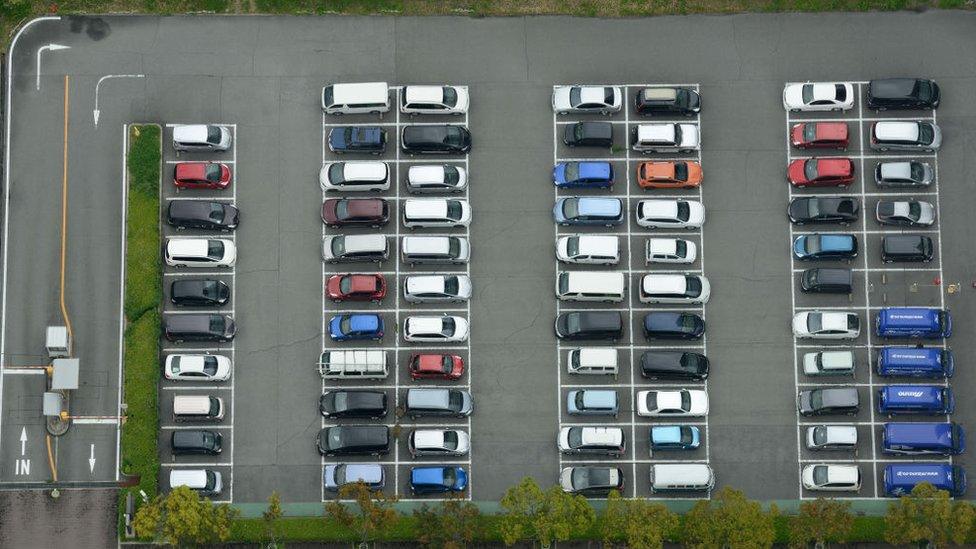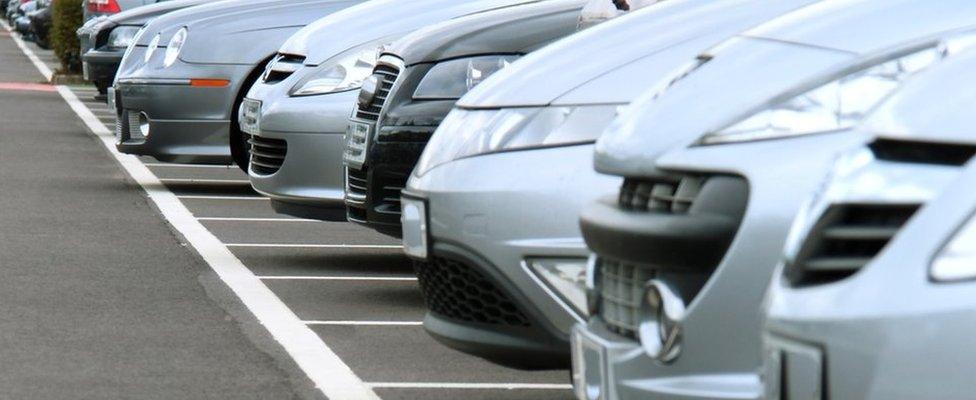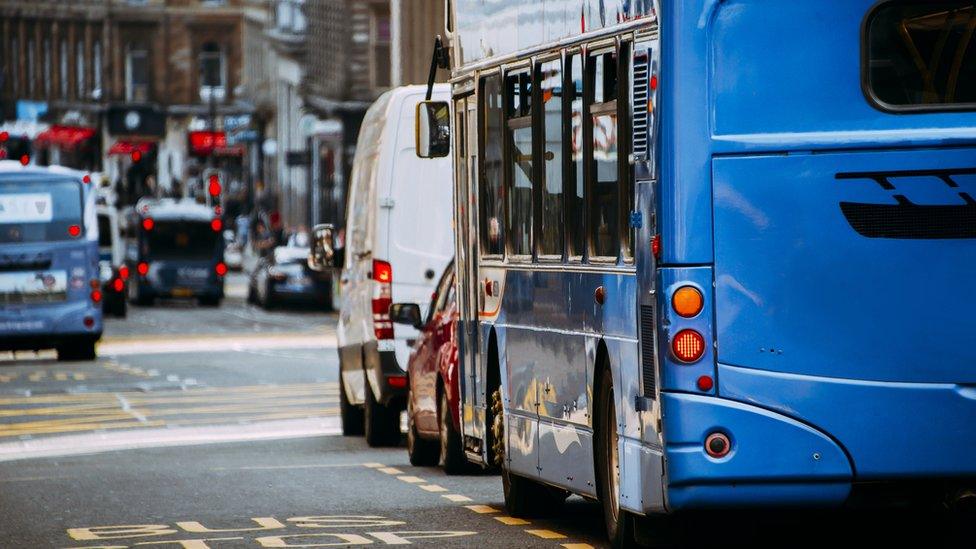MSPs approve powers for workplace parking tax
- Published
- comments

Councils in Scotland are to have the power to charge a levy on workplace parking under a new law passed by MSPs.
The new local tax power is part of a package of reforms to transport, including a shakeup of bus services and low-emission zones in cities.
An attempt by Scottish Labour to remove the parking levy aspect was defeated during a debate on Wednesday.
After two days of debate, the Transport (Scotland) Bill approved by a vote of 56 to 29, with 18 MSPs abstaining.
The move was hailed by green groups, who said it would help "combat congestion and air pollution in our city centres".
The SNP agreed to back the workplace parking levy proposals as part of a budget deal with the Scottish Greens, giving them a majority in parliament to pass the plans into law despite opposition from other parties.
The system gives local authorities across Scotland the power to charge businesses an annual fee for every parking space they provide for workers.
The firms themselves would then decide whether to pass the cost on to staff.

How will a workplace parking scheme work?

The new law gives all Scottish councils the power to impose the levy - so far only Glasgow and Edinburgh have signalled they plan to do so
Local systems likely to be modelled on a scheme in Nottingham, the only UK city to have implemented a workplace parking levy, where employers offering more than 10 spaces are charged £415 a year for every space
It is up to them to decide if they pass this cost on to staff - in Nottingham 80% of big employers do recoup at least part of it from their workers
Employers in Nottingham have adopted different ways of reclaiming the money, for example the city council deducts a percentage of annual salary, meaning higher paid workers pay more
NHS sites would be exempt for the Scottish scheme but it would be up to councils to decide on other exemptions
Money raised from the levy would be reinvested in improving transport
Read more about the workplace parking levy here.

The Transport (Scotland) Bill also aims to halt a decline in bus passenger numbers by giving councils and regional transport partnerships more flexibility to improve services, either by working with bus companies or by stepping in and running services themselves.
It also provides for a ban on double parking and parking on pavements, powers for enforcing low-emission zones in cities and new regulations overseeing roadworks.
A series of amendments to the wide ranging-bill were put forward by MSPs in a late sitting of Holyrood on Wednesday.
This included a bid to remove the workplace parking levy by Scottish Labour MSP Neil Bibby, who claimed less well-off workers would be the hardest hit.
He said: "Be in no doubt, this levy is a regressive tax on workers that will hit the lowest paid hardest.
"It is not consequence-free, it is not fundamentally a solution to climate change and far from incentivising modal shift, it penalises those for whom modal shift is not an option.
"It's not an option because for many working people, public transport in Scotland is simply not good enough."

The bill includes measures both on bus services and low emission zones in cities
Transport Secretary Michael Matheson accused Scottish Labour of "hypocrisy" over their opposition to the proposal, highlighting the introduction of a similar scheme at the Labour-run Nottingham City Council.
He added: "It's a power, not a duty. There is a high degree of local decision making in how a scheme is set up, with local authorities having wide powers to shape how that scheme is shaped to meet local needs."
Tory MSPs moved a string of amendments, aimed at ensuring a range of workplaces, such as schools and colleges, police and fire stations, prisons and veterinary practices were exempt, as well as shift workers and night workers.
But these were rejected, with Mr Matheson saying local authorities would have a "very wide range of powers to apply local exemptions to premises, persons or motor vehicles".
David Lonsdale, director of the Scottish Retail Consortium, said the plan was a "charter for extra cost and complexity".
He added: "The introduction of a levy will see firms' taxed twice for the parking places they provide for staff, on top of the business rates already paid on those spaces.
"The dearth of any business and regulatory impact assessment to accompany the introduction of this new tax is bewildering, and suggests MSPs risk voting for a pig in a poke."
- Published4 March 2022
